Finding the perfect canine companion can be a delightful journey, but for many, the prospect of dealing with copious amounts of dog hair can be a deterrent. If you’re dreaming of a furry friend who doesn’t leave a trail of fur around your home and is also a breeze to train, you’re in luck. This guide explores a selection of small dog breeds that are renowned for their minimal to non-existent shedding and their inherent trainability. Discover breeds that fit seamlessly into your life, offering companionship without the constant cleanup.
Affenpinscher: The “Monkey-Like Terrier”
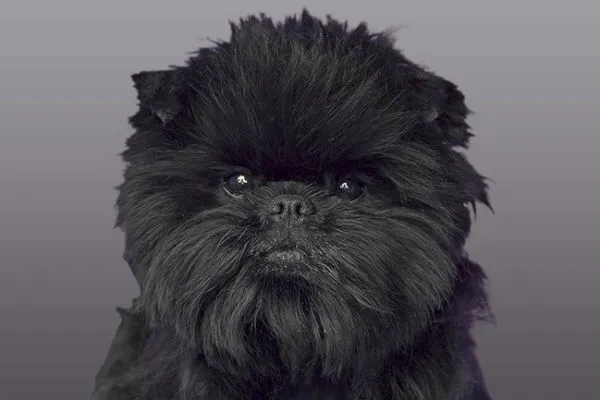 Affenpinscher dog
Affenpinscher dog
The name “Affenpinscher” translates to “monkey-like terrier,” a fitting description for this breed’s intelligent gaze and spirited personality. Despite their compact stature, Affenpinschers are remarkably fearless and alert, making them excellent little watchdogs. You won’t have to worry about unexpected visitors or finding unwanted fur on your furniture with this breed. Their wiry coat sheds minimally and is also known for its lack of strong “doggy” odor. A twice-weekly brushing with a slicker brush and comb is generally sufficient to maintain their charmingly shaggy appearance. These low-maintenance companions are celebrated for their playful sense of humor, adding joy to any household.
If the Affenpinscher’s unique character appeals to you, exploring small dog breeds that don’t shed and stay small might reveal similar traits in other breeds.
Basenji: The “Barkless” Hound
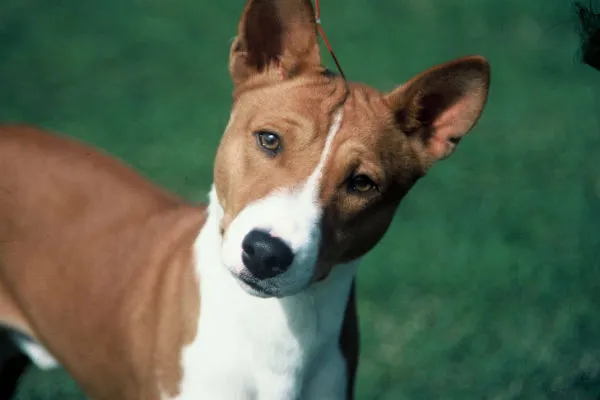 Basenji dog
Basenji dog
For those who admire the spirit of hounds but are wary of their characteristic shedding and odor, the Basenji presents an exceptional alternative. This breed sheds very little, and its short, fine coat requires minimal grooming – an occasional brush is usually all that’s needed. Basenjis are famously quiet, making them ideal apartment dwellers, provided they receive adequate daily exercise and playtime. Their unique vocalizations are more of a yodel or chortle than a bark, adding to their distinctive charm.
Bichon Frise: The Hypoallergenic Charmer
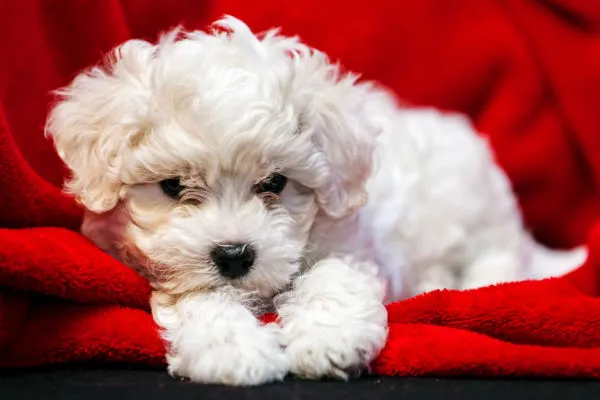 Bichon Frise dog
Bichon Frise dog
The Bichon Frise is a true marvel for allergy sufferers, often considered a completely non-shedding small dog breed. These spirited and affectionate dogs are wonderful companions, but they do require consistent grooming. Their continuously growing hair necessitates frequent brushing and occasional baths to maintain their signature “powder-puff” look. This dedication to grooming ensures their coat remains healthy and tangle-free, a small price to pay for their boundless joy and hypoallergenic qualities.
For those interested in breeds with similar hypoallergenic qualities, exploring dogs that don’t shed and stay small could provide further options.
Bolognese: The Fluffy Lap Dog
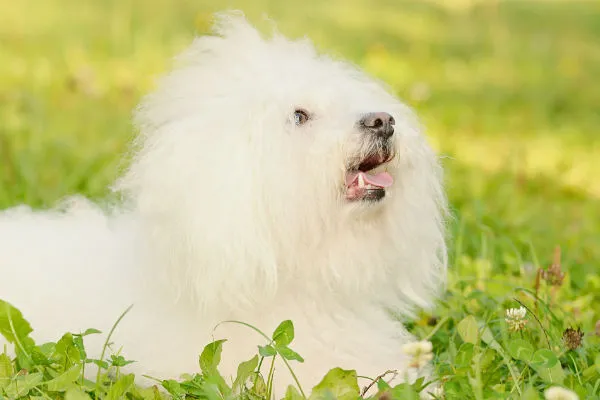 Bolognese dog
Bolognese dog
Similar to the Bichon Frise, the Bolognese boasts a distinctive fluffy coat composed of hair rather than fur. This breed is a non-shedder, though regular brushing is essential to remove dead hair and prevent matting. Daily grooming is recommended to keep these lovable lap dogs looking their finest. Their gentle and affectionate nature makes them devoted companions, perfect for those seeking a cuddly friend.
Brussels Griffon: The Alert and Trainable Companion
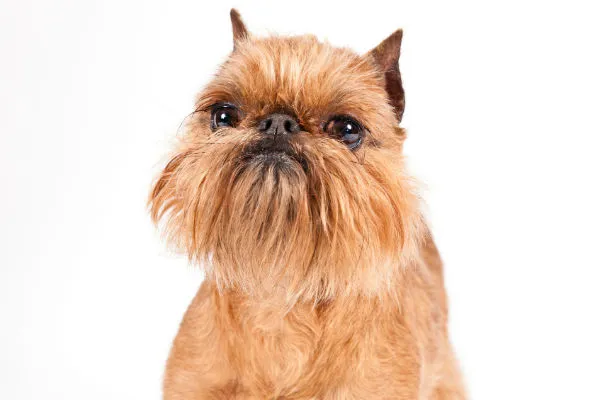 Brussels Griffon dog
Brussels Griffon dog
Don’t let their small size fool you; Brussels Griffons are not dogs that require excessive pampering. Both smooth-coated and rough-coated varieties are minimal shedders and thrive with regular grooming. Their exercise needs are easily met with a daily walk and indoor play sessions. These loyal dogs form strong bonds with their families and do best when they have frequent human interaction, making them a great choice for households where someone is often home. Their intelligence also makes them amenable to training.
Chinese Crested: The Unique Hairless or Powderpuff
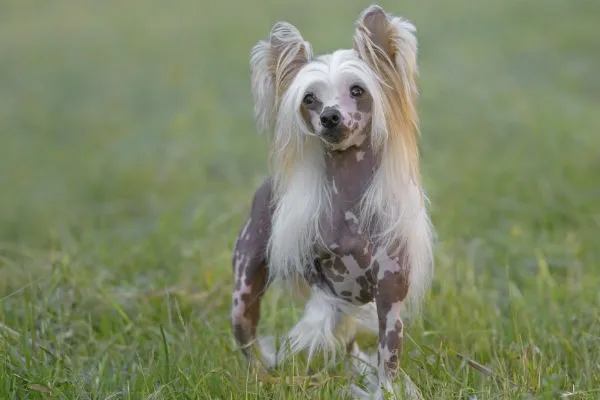 Chinese Crested dog
Chinese Crested dog
One of the most direct ways to avoid shedding is to consider a hairless breed. The Chinese Crested comes in two coat variations: hairless and powderpuff. The hairless variety has a sparse amount of hair on its head, tail, and feet, while the powderpuff is covered in a fine, soft coat that sheds very minimally. Hairless Chinese Crested dogs require special attention to their skin, needing protection from the sun and cold and being more susceptible to skin irritations. However, their unique appearance and generally gentle temperament make them fascinating companions.
Coton De Tulear: The “Cotton Dog”
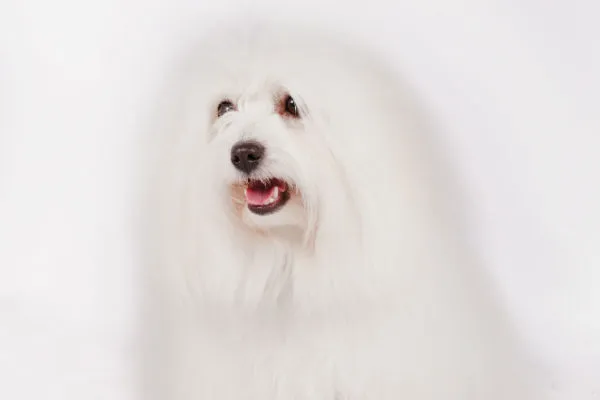 Coton de Tulear dog
Coton de Tulear dog
The Coton de Tulear, aptly named the “cotton dog,” possesses a distinctive, long, fluffy coat that is considered hypoallergenic. This makes them an excellent choice for individuals with allergies or anyone seeking a small dog with minimal shedding. While they require daily grooming to maintain their beautiful coats, their lighthearted and gentle nature makes the effort truly rewarding. Their playful spirit and affectionate disposition ensure they bring a lot of joy into a home.
Havanese: The Spunky Cuban Native
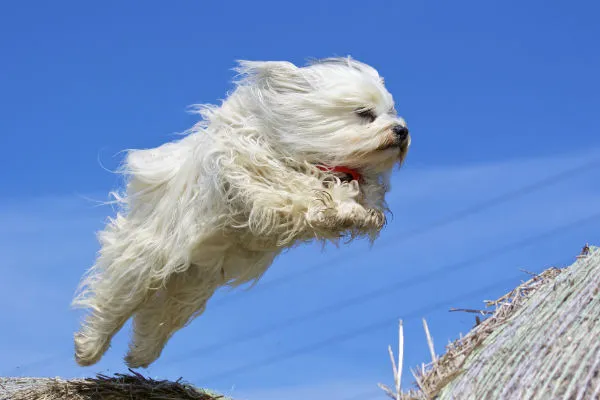 Havanese dog
Havanese dog
These charming dogs from Cuba offer their owners a delightful blend of spunky personality and a non-shedding coat. This means less time spent de-furring your furniture and more time enjoying playful romps with your Havanese. Their coat requires weekly brushing and regular baths to keep them clean and healthy. Their intelligence and eagerness to please also contribute to their ease of training.
Maltese: The Ancient Lap Dog
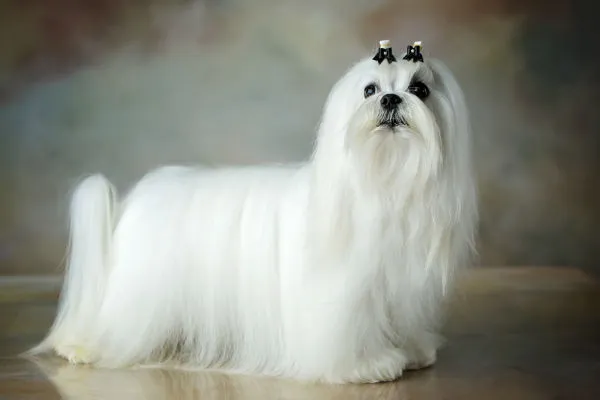 Maltese dog
Maltese dog
The Maltese breed has captivated humans for millennia with their timeless elegance and affectionate nature. Their long, white coats shed very little, making them an ideal lap dog. Regular brushing is essential to prevent tangles and mats, and occasional baths keep their silky hair clean and beautiful. Their gentle demeanor and minimal shedding make them a beloved choice for many.
Lhasa Apso: The Tibetan Guardian
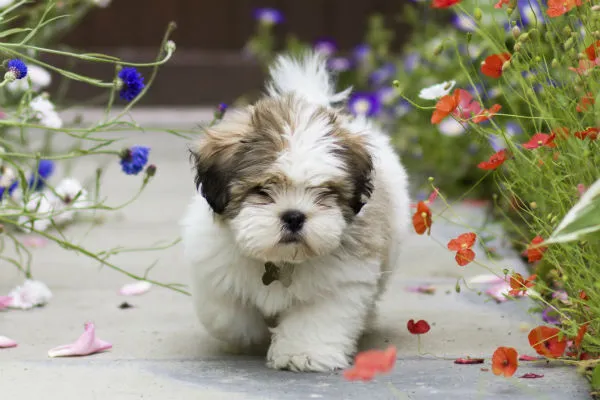 Lhasa Apso dog
Lhasa Apso dog
Originating from Tibet, the Lhasa Apso is a small dog breed that makes an excellent companion. Known for being calm yet playful, they enjoy brisk walks and relaxing in their owner’s lap. Lhasa Apsos do not shed, but their coats require maintenance. Many owners opt for a “puppy cut” to simplify grooming and brushing of their long hair. Their independent nature, however, means consistent training is beneficial.
Miniature Schnauzer: The Smart and Cheerful Terrier
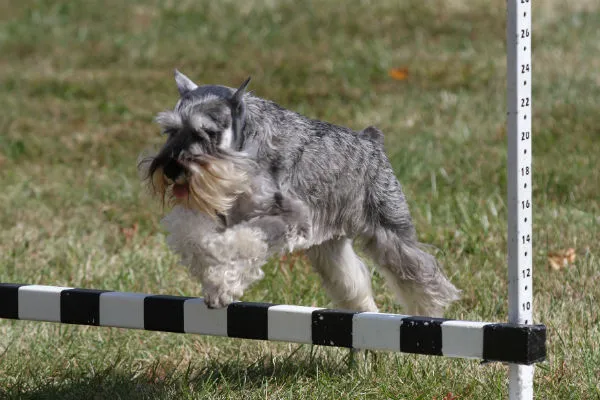 Miniature Schnauzer dog
Miniature Schnauzer dog
The Miniature Schnauzer is an intelligent, trainable, and cheerful little dog that shares a strong resemblance with its larger Standard Schnauzer relatives. This breed sheds very little, and their adaptability allows them to thrive in both urban and rural environments, as long as they are close to their families. Weekly brushing and regular grooming are important to keep their distinctive wiry coats in top condition. Their smarts and willingness to please make them highly responsive to training.
For a deeper dive into breeds that are both trainable and low-shedding, consider looking at calm small dog breeds that don t shed.
Poodle: The Intelligent and Hypoallergenic Star
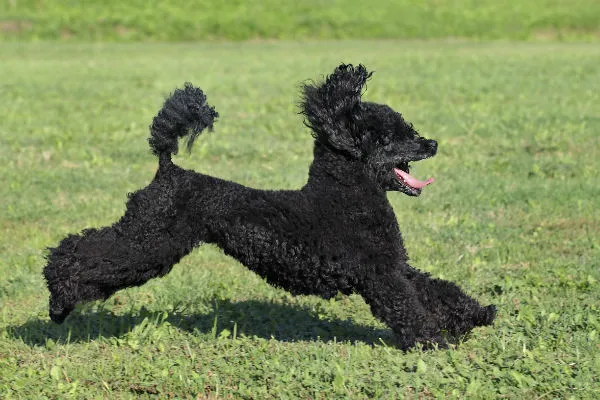 Poodle dog
Poodle dog
Poodles are frequently at the top of the list when discussing small dogs that don’t shed, and for good reason. They are renowned for being non-shedding and hypoallergenic. Miniature and Toy Poodles offer these sought-after qualities in intelligent, petite packages. All Poodles are highly intelligent, which contributes significantly to their ease of training. They are active and proud dogs, but their hair does require regular professional grooming to prevent matting and maintain their iconic looks.
Scottish Terrier: The Bold and Confident Companion
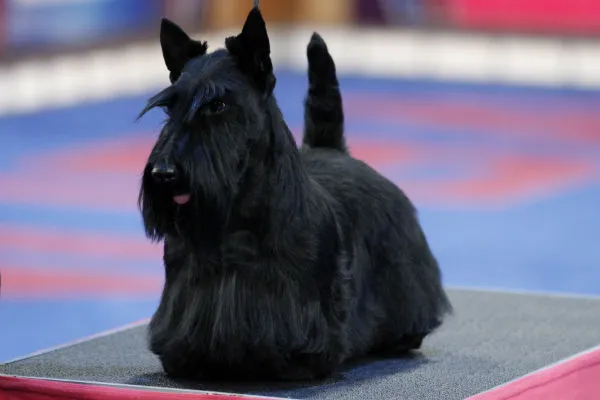 Scottish Terrier dog
Scottish Terrier dog
The Scottish Terrier, or Scottie, is a bold, confident dog with a big personality. Their wiry, weather-resistant coat sheds very little, though regular brushing, grooming, and occasional hand-stripping are necessary to maintain coat health and the breed’s characteristic outline. Scotties are clever and independent, possessing strong prey drives, so owners need to be mindful around smaller animals. Their intelligence can make training a rewarding experience, focusing on consistency and positive reinforcement.
Shih Tzu: The Regal “Little Lion Dog”
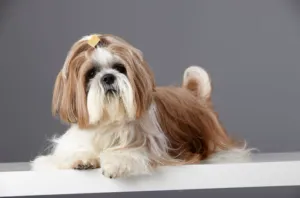 Shih Tzu dog
Shih Tzu dog
With a long and distinguished lineage, the Shih Tzu, often called “little lion dogs,” is a breed favored for its luxurious, low-shedding coat. Their long, silky hair looks exceptionally regal when brushed out, befitting their royal ancestry. This sturdy and lively Toy breed typically carries itself with a proud carriage. Bred primarily as house pets, their gentle and trusting nature makes them exceptional, trainable companions.
West Highland White Terrier: The Cheerful and Loyal Westie
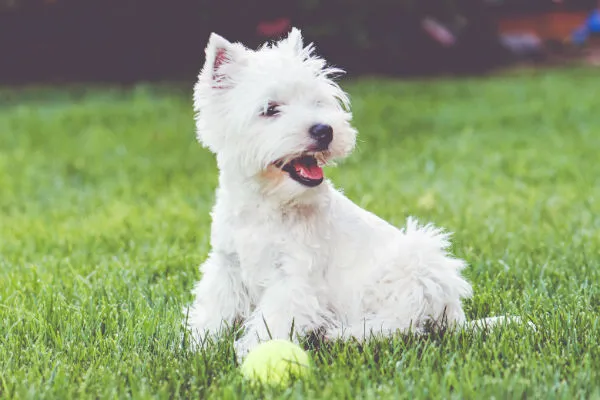 West Highland White Terrier dog
West Highland White Terrier dog
The West Highland White Terrier, affectionately known as the Westie, has a coarse, white coat that sheds very little. This sturdy little dog is intelligent, loyal, happy, and highly entertaining. While their curiosity and moderate energy levels are appealing, their independent streak, common among terriers, can sometimes present a challenge during training. Patience and consistent, positive methods are key to successfully training a Westie.
Xoloitzcuintli: The Ancient Mexican Hairless
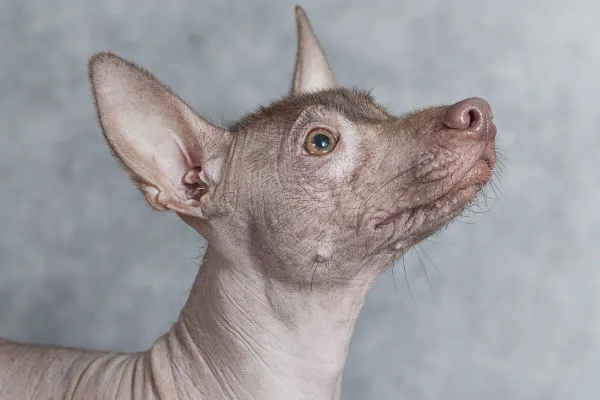 Xoloitzcuintli dog
Xoloitzcuintli dog
Also known as the Mexican Hairless, the Xoloitzcuintli is an ancient and rare breed that can be either hairless or coated. The hairless varieties have minimal hair, while the coated ones have a very short, fine coat that sheds minimally. Like other hairless breeds, Xolos require extra skin care to protect them from the elements. They make attentive watchdogs and affectionate companions. Despite enjoying physical activities, they are known for their tranquil demeanor at home, which aids in their trainability.
Yorkshire Terrier: The Spunky Toy Breed
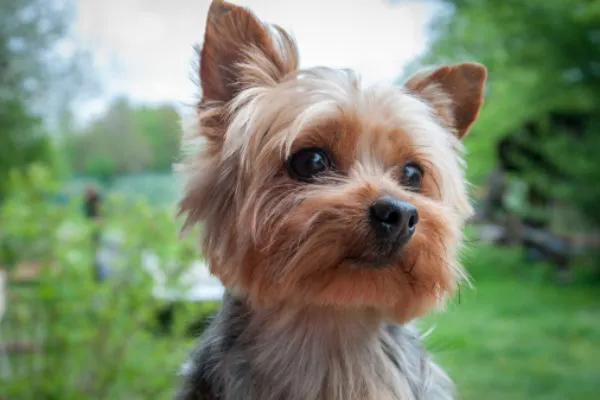 Yorkshire Terrier dog
Yorkshire Terrier dog
Sprightly, affectionate, and full of personality, the Yorkshire Terrier, or Yorkie, is a Toy breed that captures hearts. These spunky lap dogs are known for their non-shedding, silky coats, which are beautiful when brushed daily. Their small size makes grooming manageable. Don’t let their delicate appearance fool you; these fearless terriers have working-class roots and were historically bred to hunt rats. Today, they are equally content as affectionate companions on a lap. Their intelligence and spirit make them trainable, though they often possess a strong will.
Finding the right small dog that doesn’t shed and is easy to train can significantly enhance your living experience. Remember to always research thoroughly and consider adopting from a shelter if possible. If you are looking for specific types of toy breeds, you might find information on where to look for them through resources like toy breed dogs for sale near me or even specific mixes like toy fox terrier yorkie mix puppies for sale.
When choosing any dog, it’s crucial to ensure they are purchased from a reliable breeder, fed a high-quality diet, and receive regular veterinary check-ups to maintain their health and well-being.
